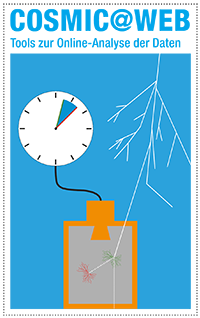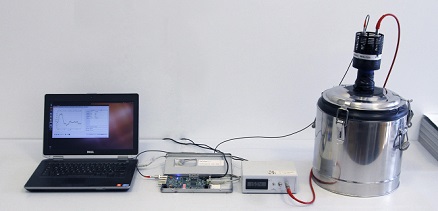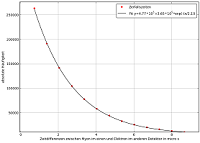URL: https://www.desy.de/school/school_lab/zeuthen_site/cosmic_particles/experiments/lido/index_eng.html
Breadcrumb Navigation
LiDO
LiDO
LiDO (Liquid Scintillation Muon Decay Observer) is an experiment for measuring the mean lifetime of cosmic muons. It is permanently installed in the CosmicLab at DESY in Zeuthen.
The decay of a muon produces one electron or one positron and two neutrinos. With the exception of the neutrinos, all these particles are detectable in the LiDO and play a role in the measurement: Charged elementary particles, such as the muon, generate light in the scintillator that is registered by the PMT. When a muon decays in the detector, the resulting electron or positron generates another light signal a short time later. To determine the mean lifetime of muons, the time difference between the first light signal from the muon and the second signal from the electron or positron is measured. If the time difference is smaller than 20 microseconds, the event is assumed to be a muon decay and will be stored in the data. The frequency distribution of the time differences allows the determination of the average lifetime with the aid of the decay law.






